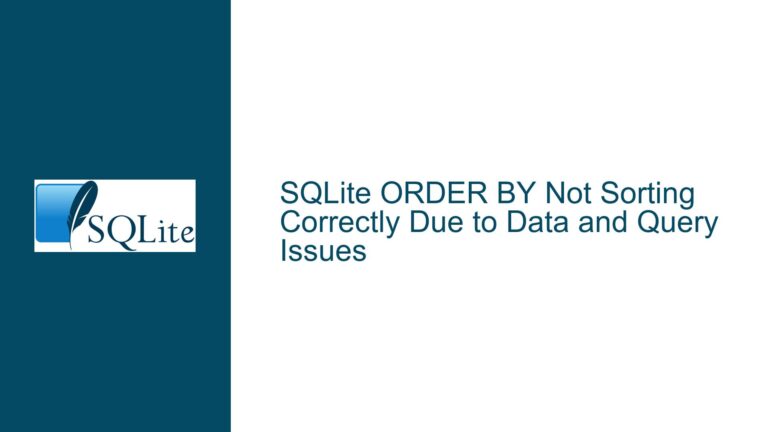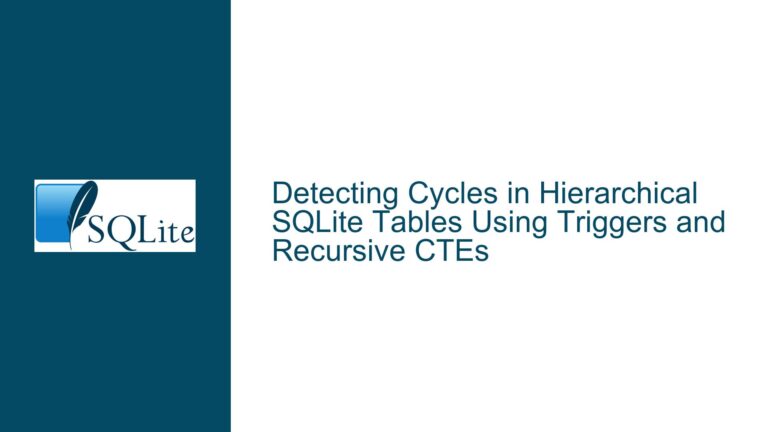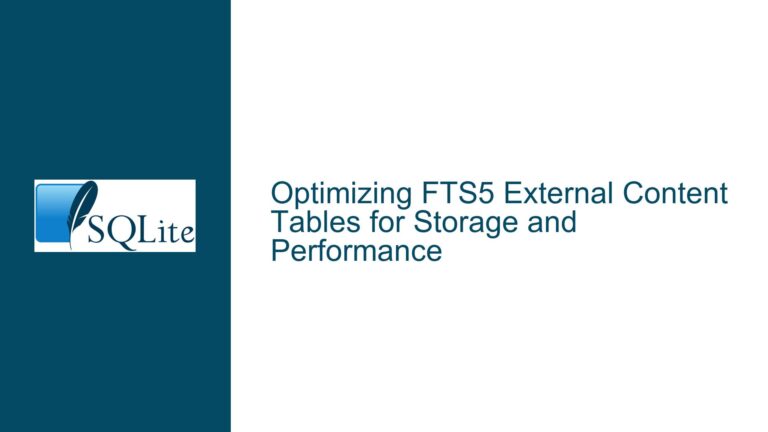Minimizing Disk I/O in SQLite for Low-Memory Embedded Systems
Issue Overview: Frequent Disk Access in Resource-Constrained Environments The core challenge revolves around optimizing SQLite for embedded systems or devices with limited memory resources while mitigating flash memory wear caused by frequent disk I/O operations. A typical use case involves applications that require rapid database reads (e.g., every 50ms) and periodic writes (e.g., every second),…









